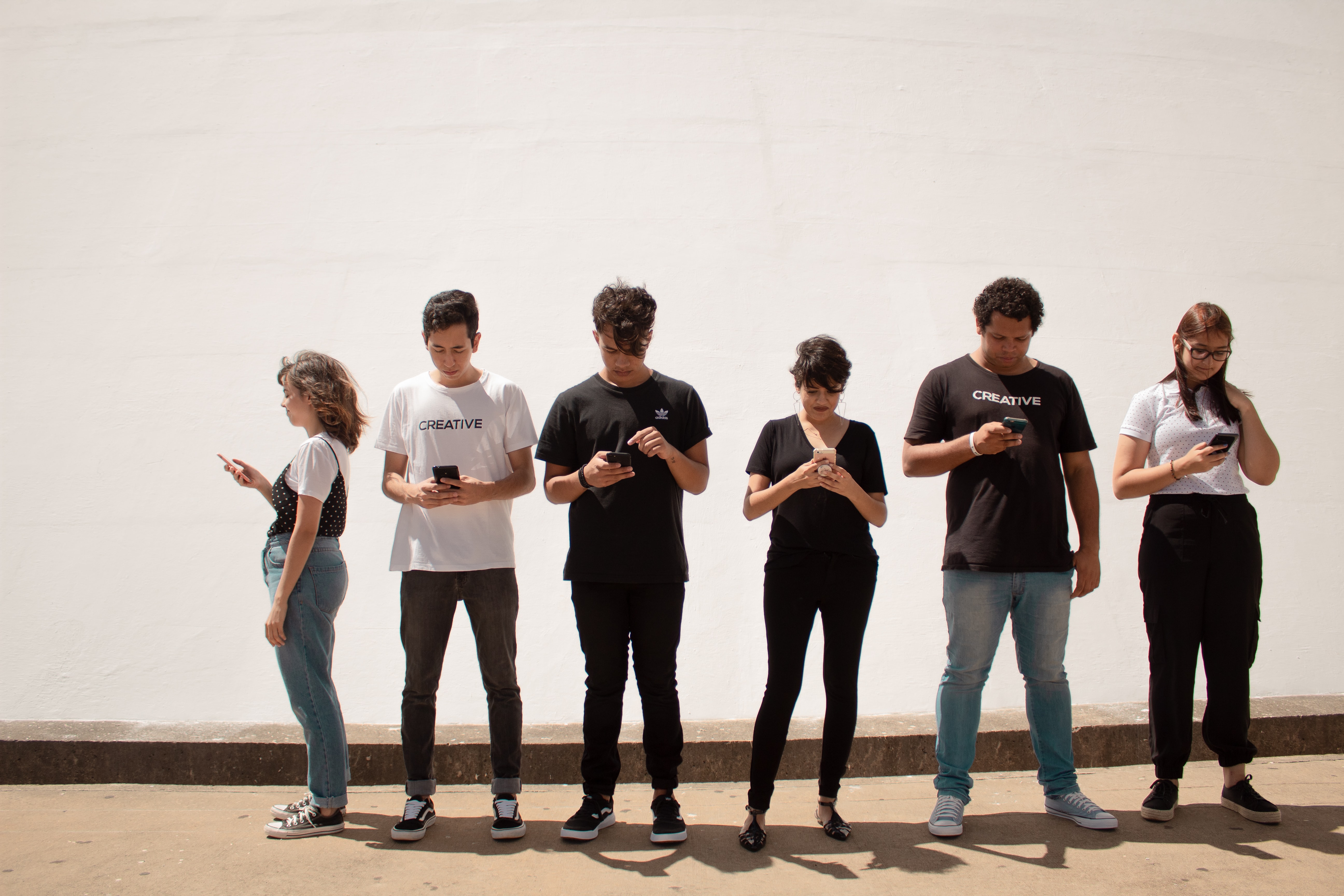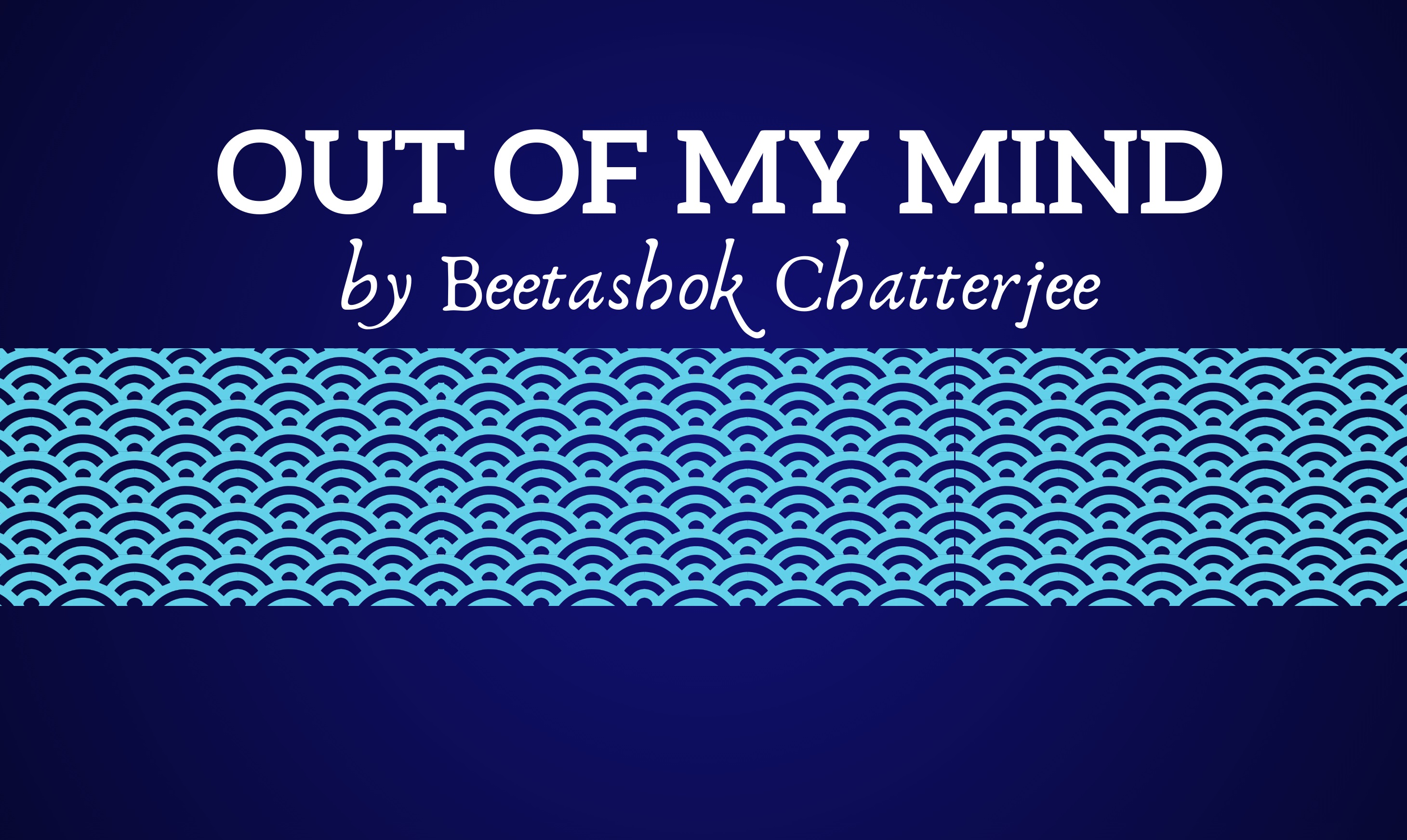Haven’t you noticed teens and tweens aged from 8 to 17 sitting on benches in public places like a park or a mall, perhaps at school or college during break—hunched over their smartphones, oblivious to the world around them and lost in their own? Judging from the range of expressions on their young faces, from brows furrowed in intense concentration to goofy grins, my guess would be that they’re texting something of earth-shaking importance to their friends, updating their status or changing their pouting profile pics on their accounts in Facebook, Instagram and Twitter, replete with appropriate e-mojis capturing the mood they wish to convey. Or maybe they’re playing some video game, or scrolling over memes, or forwarding TikTok videos which will shortly turn full circle and return to their devices.
I know…we adults do it too. My generation in any case has a lot of time to waste. But do they? I’d like to think that we adults use social media better and utilize its benefits more. It’s the kids one should worry about. They’re vulnerable. This blog is about them.
Why do kids spend so much time on social media?
The main reason of course is the ease with which they can quickly and easily communicate with their friends, thanks to technology. With the click of just a couple of buttons, they are able to send pictures, chat or information to one another instantly, even half way across the globe. It is, I admit, a very good reason to spend time with one’s phone. That’s the good part. The other reasons that come to mind I fear aren’t that good. Here goes….
Kids fear that if they’re not up to date on social media, they’ll miss out on a huge event, or a post by someone popular, or something they deem as important. It’s called Fear of Missing Out, or FOMO. They don’t want to be left out of any conversation that their peers are discussing. Not fitting in would be so uncool! They want to be the first to catch a new catchy post and circulate it to their groups, to establish that they saw it first.
Another possible reason is how they want to appear to others. It’s all about their online profile. Many spend a lot of time selecting attractive selfies to upload, editing the photos to make them more visually appealing. The more ‘likes’ and/or followers they get, the more popular they appear to others; therefore the greater their self esteem. Some teens constantly hunt for more followers and find a way to get more ‘likes’ on their posts. A lot of teenagers delete posts if they don’t get a high number of ’likes’. Getting a low number, in their minds, equates to low status and ridicule, especially in a school environment. . Shy teens are more likely to have a bolder online presence. Some social wallflowers are able to word their posts to come off as witty and cool, though in real life they’re not like that at all, but aspire to be. So maintaining their online persona becomes very, very important to most of them.
To many teens, social media is an escape from the real world with all its stresses and hassles, and provides a perfect distraction. On these platforms, it’s easier to make friends, and more often than not, people are accepted wholeheartedly and right away, creating a sort of safe haven for those who seek acceptance. Kids then post events in their lives, momentous or sad, in order to get praise, support and reassuring comments from their ‘friends’. They thrive on this.
Then there is boredom, plain and simple. Teens generally get bored easily. When in a group of people who are not paying them any attention, they turn to their phones for solace, start scrolling down social media and pretend they’re busy. The art of making face-to-face conversation—old-fashioned social intercourse—is not something they want to learn. Technology has made them this way.
These are some of the reasons why I think kids spend so much time on social media. It certainly appears that this phenomenon is here to stay; it has become an integral part of our lives. Smartphones are ubiquitous among kids and are not going away anytime soon. But for the sake of these youngsters, let us not ignore the dangers that lurk in the shadows.

Source: Creative Christians on Unsplash
Is it easy to make friends on social media? Yes, it is...really easy to make friends with paedophiles and con artists operating under false identities. There was a time when parents would teach their children not to talk to strangers, and what to do if a stranger approached them, remember? Now parents are buying their kids smartphones. And strangers are following these kids’ posts and getting friendly; perhaps setting up a meet. Creepy, don’t you think?
Six months of binging on social media can lead to depression among youngsters, says a 2018 study authored by Dr Brian Primack, a dean at the University of Arkansas, USA. The study, which has been published in the American Journal of Preventive Medicine, is the first large one to show a link between social media use and depression over time. Youngsters who use social media more than 5 hours per day are especially vulnerable, according to the study. Depression does more than just make one sad, as we all know. It causes social and behavioural problems, poor performance and learning, neglected hygiene and low self esteem. There is also the danger of developing Attention Deficit Hyperactivity Disorder (ADHD). Not to mention suicidal tendencies, in some cases.
Excess time on social media may displace forming important relationships, achieving personal or professional goals, or even simply having moments of valuable reflection or soul searching, things we all need to do once in a while. Youngsters are losing their communication skills when they’re constantly texting or speaking virtually. They’re unable to convey facial expressions, tones and inflections when texting on the Internet. The importance of eye contact and voice modulation in verbal communication are skills they are unlikely to pick up. This may hamper their public speaking skills in later life. Too much time on social media can affect their performance in school and college and can get them into trouble with their teachers.
Health issues can crop up as well. There are increased chances of becoming obese, what with the lack of physical activity during screen time combined with munching on high calorie snack food. Plus, kids don’t like to take time away from their digital screens to sit down to healthy meals. Many parents don’t enforce this. Their sleep patterns may go awry, if they continue obsessing about video games, chats and TV programs all night.
Parents, do your teens look for their phones first thing in the morning and the last thing at night? Do they use them to procrastinate, requesting a short break from studies to check on messages, and extend that break to a couple of hours? Do they lunge for their phone as soon as a notification chimes on it? Is social media the main source of news that they obtain news from—like WhatsApp forwards and Twitter? Is there unusual anxiety apparent when connectivity is down and they cannot access their social media handle? These signs should warn you that your children (they’re still children, remember!) are addicted to social media, and need to be weaned off it.
I’m not suggesting that kids should not get any screen time or access to the Internet. Of course they should! The Internet can be a reliable source of information for kids who simply love to read or want to learn more about specific topics for their school projects. But it’s up to parents to regulate the amount of time their kids spend online each day, especially the mindless scrolling, swiping and browsing all day long. They need to make sure their child has time for other valuable activities, such as eating healthily, reading, homework, writing, physical activities, extracurricular activities etc.
Parents, if you haven’t already done so, you could begin with setting the home computer up in a central location, outside of the child’s room, at a location where the screen can be easily viewed when you step into the room. Mobile apps could be installed for age-appropriate content on their devices, which could interest them enough to divert their attention from social media. Screen time could be restricted to, say, two hours per day after homework is completed. Parental control software like Kaspersky Safe Kids or Boomerang which will screen web searches and sites for inappropriate content could be installed on the devices they use.
Life shouldn’t be this way. People (yes, adults too!) need to stop obsessing over social media, and return to traditional forms of communication. It’s quite sad that less and less people call each other on the phone or actually make the effort to spend time together in person. After all, why bother when the same thing can be done effortlessly by a standard text message and an appropriate e-moji?
Beetashok Chatterjee is the author of ‘Driftwood’, a collection of stories about Life at Sea, and ‘The People Tree’, another collection of stories about ordinary people with extraordinary experiences. A retired merchant ship’s captain by profession, this old sea dog lives in New Delhi with his memories of living more than 40 years on the waves.
Click here to check his detailed profile.
His books are available on Amazon. Click here.


Comments